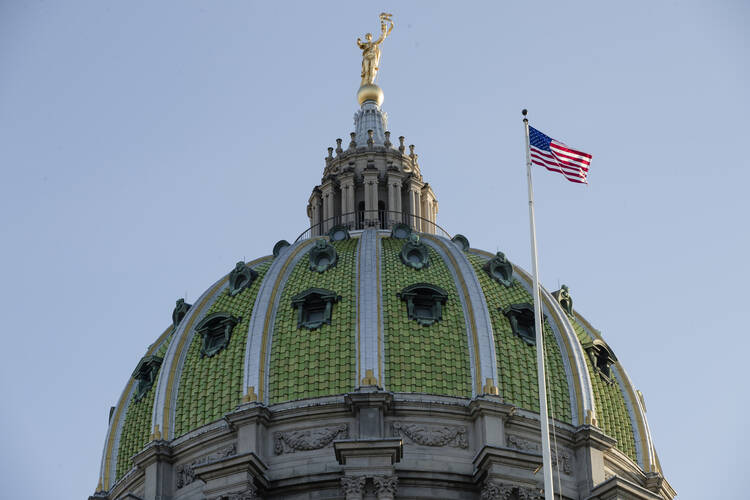HARRISBURG, Pa. (AP) — The state where a grand jury’s groundbreaking report set off a new wave of reckoning over sexual abuse in the Roman Catholic Church passed legislation Thursday giving victims more time to sue and police more time to file charges.
The Pennsylvania House sent the statute-of-limitations bill to Democratic Gov. Tom Wolf with a 182-5 vote, along with a measure that invalidates secrecy agreements in lawsuit settlements that prevent child sexual abuse victims from talking to investigators.
“This has been a long and trying process, and we are finally at the finish line,” the statute-of-limitations bill’s prime champion, Berks County Democratic Rep. Mark Rozzi, told fellow lawmakers. “Justice is coming.”
Wolf’s office said he intends to sign the bills and a third measure that increases and clarifies penalties for mandated reporters who do not report suspected child abuse.
Spokesman J.J. Abbott said Wolf “thanks the brave victims that made these changes possible by sharing their stories and fighting for justice.”
A fourth piece of legislation has also passed both chambers, a proposed state constitutional amendment to give now-adult victims of child sexual abuse a two-year window to sue abusers and institutions. The amendment must pass the House and Senate again in the 2021-22 session before going to voters in an election.
Victims of past abuse should be able to hold accountable institutions that covered up or enabled crimes against children, said Rep. Tom Murt, R-Montgomery.
“It’s time to open the window,” Murt said during floor debate. “We need to open the window and allow the light of truth to shine in this dark place. Anything less is justice denied.”
Rozzi’s bill would put an end to any statute of limitations, in future cases, for the criminal prosecution of major child sexual abuse crimes. The current law limits it to the victim’s 50th birthday.
Authorities would have up to 20 years to file charges in sexual abuse cases where young adults 18-23 years old are the victims, as opposed to 12 years after the crime for victims over 17 in current law.
For lawsuits, victims would have until they turn 55 to sue, as opposed to age 30 under current law, and young adults ages 18-23 would have until age 30 to use, whereas existing law gives them only two years.
Governmental institutions, such as public schools, would lose immunity from lawsuits for child sexual abuse if the person suing was harmed by the negligence of the institution.
One of the no votes on the statute-of-limitations bill, Indiana County Republican Rep. Cris Dush, said his opposition was related to the changes in lawsuits. Dush said he was concerned about a flood of litigation based on allegations that could be too old to effectively defended against.
“In these cases, there are a number of law firms out there that are very willing to go out and hammer certain organizations that otherwise have been doing very good work for our constituents,” Dush said.
Since the investigative grand jury report was issued in August 2018, Pennsylvania dioceses have launched compensation funds and have been reporting the number and amount of settlements.
The report said that hundreds of Roman Catholic priests had sexually abused Pennsylvania children over seven decades and that church officials helped covered it up.
About two dozen states changed their laws on statutes of limitations this year.










